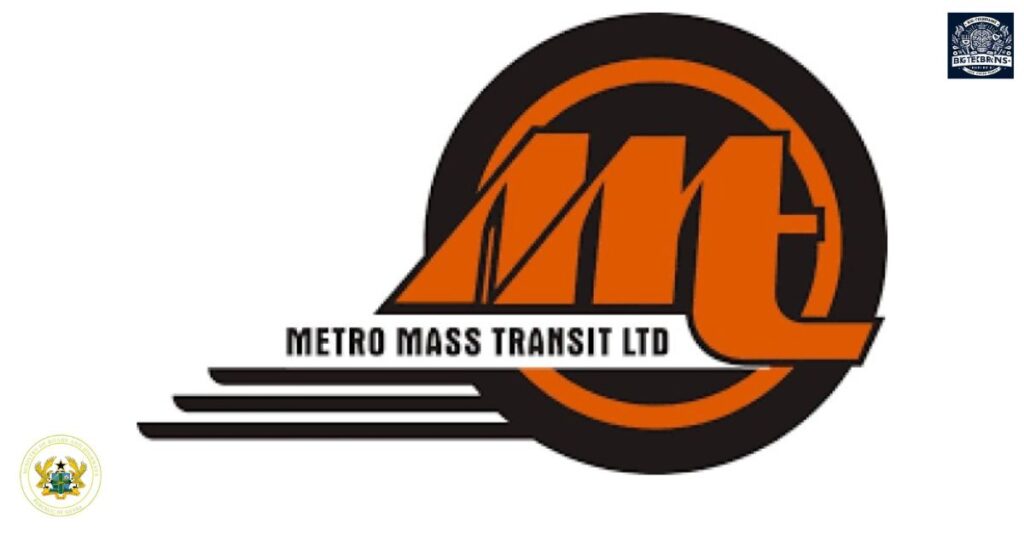Excerpt
Metro Mass Transit Limited (MMT) and Intercity STC Coaches Limited (STC) are two prominent public transportation companies in Ghana, each with a rich history and significant contributions to the nation’s transit system.
Historical Overview
The origins of STC date back to 1909 when it began as the Government Transport Department, serving the transportation needs of the central government. In 1965, it was established as a corporate entity under Legislative Instrument (L.I) number 414, named the State Transport Corporation, to manage commercial passenger services. Over the years, it underwent several transformations and, in October 2003, became known as Intercity STC Coaches Limited.
MMT was officially incorporated in 2003, following President John Kufuor’s vision to introduce a mass transit bus system in Ghana’s cities. The company was established to provide reliable and affordable transportation for commuters within villages, towns, and cities, as well as for intercity travel.
Mission and Vision
STC aims to be the leader in the road transport industry in Ghana and the ECOWAS sub-region, consistently and profitably. Its mission is to redefine and elevate the travel experience by delivering safe, convenient, and enjoyable journeys that connect people, cultures, and places.
MMT’s vision is to build a dominant, reliable, efficient, safe, and affordable yet economically sustainable mass transit public bus company in Ghana. The mission is to provide an efficient urban mass transport system through the use of buses.
Leadership and Organizational Structure
Both companies are managed by boards of directors appointed by their respective shareholders. The leadership teams typically include positions such as Managing Director, Deputy Managing Director, and various departmental heads overseeing operations, finance, human resources, and other critical functions.
Ownership and Governance
STC is a joint venture between the Social Security and National Insurance Trust (SSNIT), which holds the majority shares, and the Government of Ghana, the minority shareholder.
MMT operates as a public-private partnership, with the Government of Ghana holding 45% of the shares and six institutional investors—SIC Insurance Company, National Investment Bank, Ghana Oil Company, Agricultural Development Bank, Prudential Bank Limited, and SSNIT—collectively holding 55%.
Operational Units and Services
STC operates several units, including:
- Passenger Transport Services: Providing intercity and international bus services.
- Courier Services: Handling parcel deliveries across their service routes.
- Driver Training: Offering professional driver training programs.
- Vehicle Valuation and Maintenance: Providing vehicle testing and maintenance services.
MMT focuses on:
- Intracity Services: Operating within major cities to facilitate urban mobility.
- Intercity Services: Connecting various cities and towns across Ghana.
- Urban-Rural Services: Ensuring transportation access between urban centers and rural areas.
Recruitment and Appointment
Recruitment in both organizations is conducted through formal processes that include public advertisements of vacancies, application reviews, interviews, and selection based on merit. Appointments to leadership positions are typically made by the boards of directors, considering qualifications and experience.
Partners and Customers
STC collaborates with various stakeholders, including government agencies, private sector partners, and international organizations, to enhance service delivery. Its customer base spans individual passengers, corporate clients, and governmental bodies requiring transportation and courier services.
MMT serves a broad customer base, including daily commuters, students, and rural populations. The company partners with governmental and non-governmental organizations to improve transportation infrastructure and services.
Operations and Job Roles
Key job roles within these organizations encompass:
Drivers:
- Responsible for the safe operation of buses.
Conductors:
- Assisting passengers and managing fare collection.
Mechanics and Maintenance Staff:
- Ensuring the vehicles are in optimal condition.
Administrative Personnel:
- Handling finance, human resources, customer service, and other administrative functions.
Historical Reforms
- Both companies have undergone significant reforms to improve efficiency and service delivery. STC, for instance, transitioned from a government department to a limited liability company, allowing for more operational flexibility. MMT was established as part of a governmental initiative to revitalize public mass transportation, reflecting a shift towards public-private partnerships in the sector.
Additional Information
STC operates routes connecting regional capitals in Ghana, such as Kumasi, Sunyani, Takoradi, and Cape Coast, as well as international services to cities in neighboring countries like Ouagadougou, Abidjan, and Lomé.
MMT serves over 500,000 passengers daily across the country, operating a fleet of buses that cater to various transportation needs.
References
- https://stc.gov.gh/about-us-2/
- https://mmt.gov.gh/
- https://en.wikipedia.org/wiki/Intercity_STC
- https://siga.gov.gh/sector/metro-mass-transport/
- https://www.ghanayello.com/company/30526/Metro_Mass_Transit_Ltd
- https://en.wikipedia.org/wiki/Metro_Mass_Transit_Company_Limited
- https://stcticketing.gov.gh/Aboutus.aspx
- https://www.mot.gov.gh/4/1/road-transport-services
- https://ir.ucc.edu.gh/xmlui/bitstream/handle/123456789/7116/Bus_Passenger_movements_in_Ghana_A_Case.pdf?sequence=1
- https://www.ghanayello.com/company/33062/Intercity_STC_Coaches_Ltd
- https://www.academia.edu/24557207/PUBLIC_MANAGEMENT_OF_THE_GHANAS_METRO_MASS_TRANSIT_LIMITED
- https://timbu.com/ghana/bus/intercity-stc-coaches

